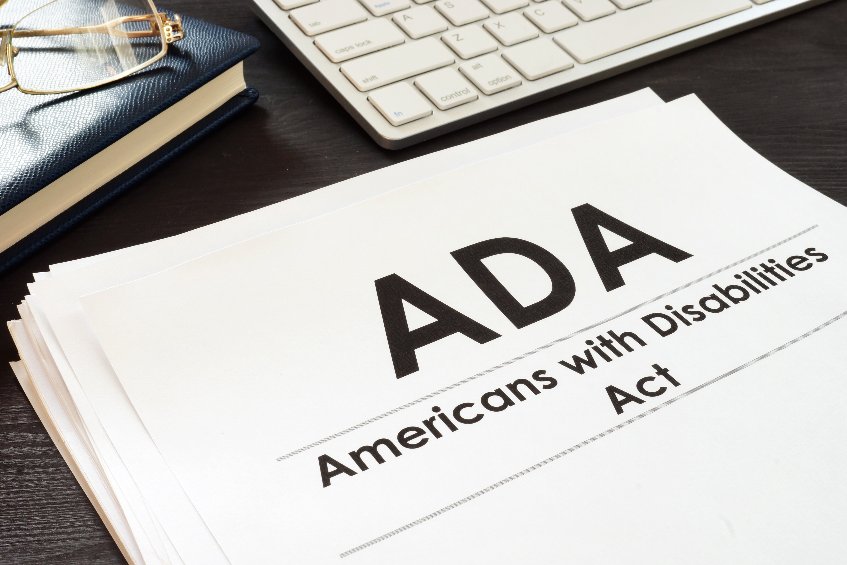The Americans with Disabilities Act, or ADA, was drafted into congress and is a civil rights law that aims to prohibit discrimination based on disabilities. Disability, as defined by the ADA, is “a physical or mental impairment that substantially limits one or more of the major life activities of such individual.” An ADA lawsuit is a case with a claim of discrimination against a person covered by the ADA, usually for a lack of reasonable accommodation as required by the ADA.
What Happens If You Do Not Comply with the ADA?
There are serious consequences a business may face if it does not comply with the minimum requirements set forth by the ADA for accommodations or other protections afforded by the act. Individuals covered by the ADA are given the right, by the ADA, to file lawsuits in federal court and obtain court orders to stop ADA violations. If your business is sued by a person covered by the ADA and you lose the case, you will be responsible for paying the winning party’s attorney’s fees.
Additionally, these individuals also have the right to file complaints with the justice department which will later investigate and attempt to resolve the complaint. If the justice department eventually sues you, you will not be responsible for attorney’s fee, but, if you lose, you, will be responsible for monetary damages and civil penalties. These can be as expensive, as for a first violation, these penalties start at $92,383 and $184,767 for a subsequent violation.
What Are Florida Laws on ADA?
Because the ADA falls under federal law, Florida is required to guarantee these same protections to individuals covered by the ADA. The four major areas where the ADA is usually violated is under employment, public accommodations, transportation, and housing. If a business practices discriminatory behavior towards an individual in one of these areas, they may be violating the ADA. In Florida, individuals with disabilities have protection from discrimination by the ADA in all programs, activities, and services of public entities.
How Do These Laws Apply to Florida Business Owners?
ADA lawsuits, while often overlooked, are not to be taken lightly. In 2017, Florida passed a statute that was designed to assist business owners involved in lawsuits related to violations of Title III of the ADA. Title III is focused on prohibiting discrimination on the basis of disability in public businesses, such as restaurants, offices, stores, theaters, among others. If business owners do not comply, they might be subject to a lawsuit.
Under this law, a business owner that falls under Title II of the ADA, which covers services, programs, and activities provided by state and local government entities, can attempt to avoid the lawsuit or at least mitigate the damages by requesting qualified experts to inspect the facility. Only then will the expert determine if it is a violation of the ADA. The expert may prepare a certificate of conformity, depending on the findings, which indicates that the facility conforms to the ADA. This certificate will be valid for three years after its issued.
It is important to note that this statute does not prevent a lawsuit from being filed against your business, however it may protect you from being responsible for the Plaintiff’s attorney’s fees and costs.


